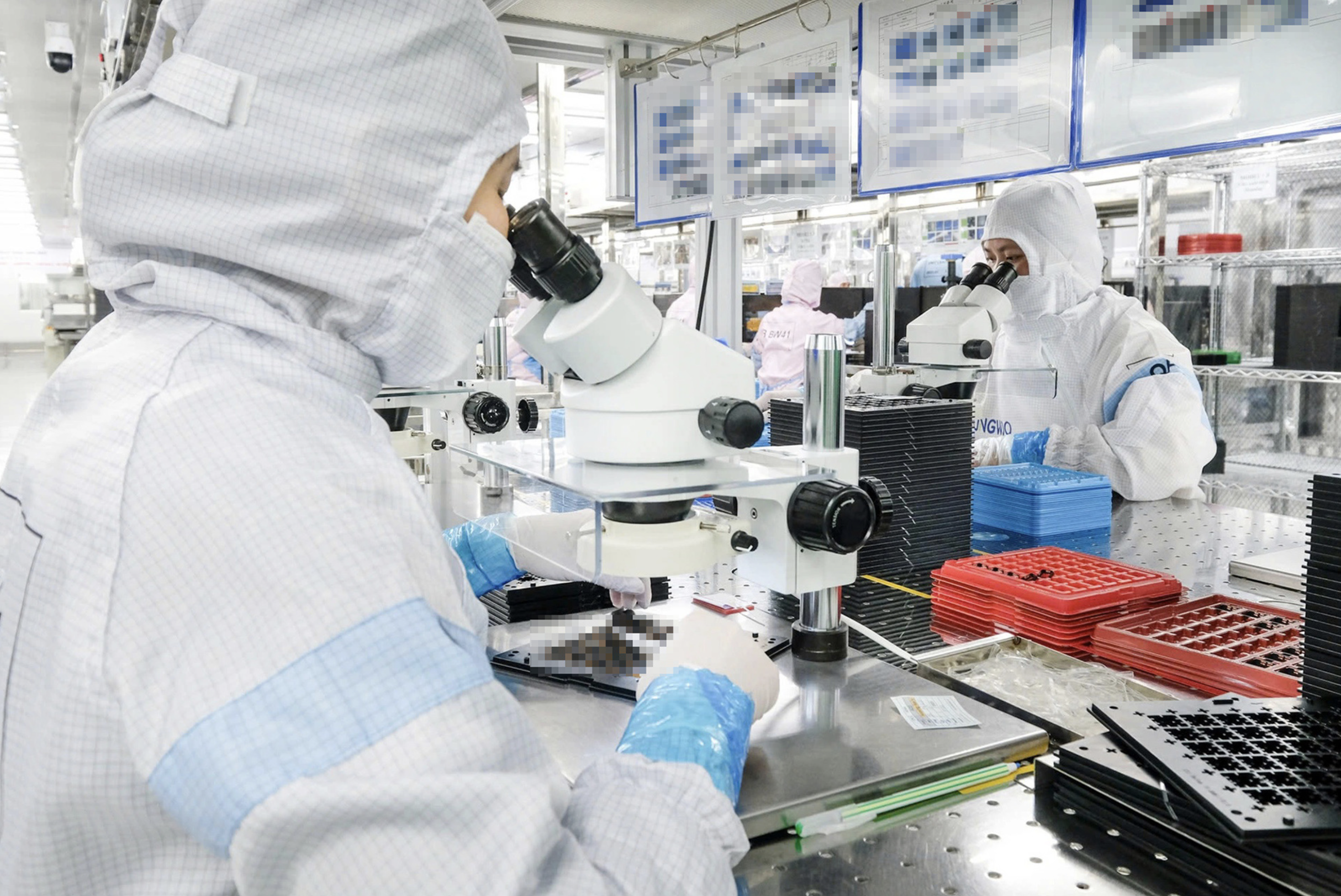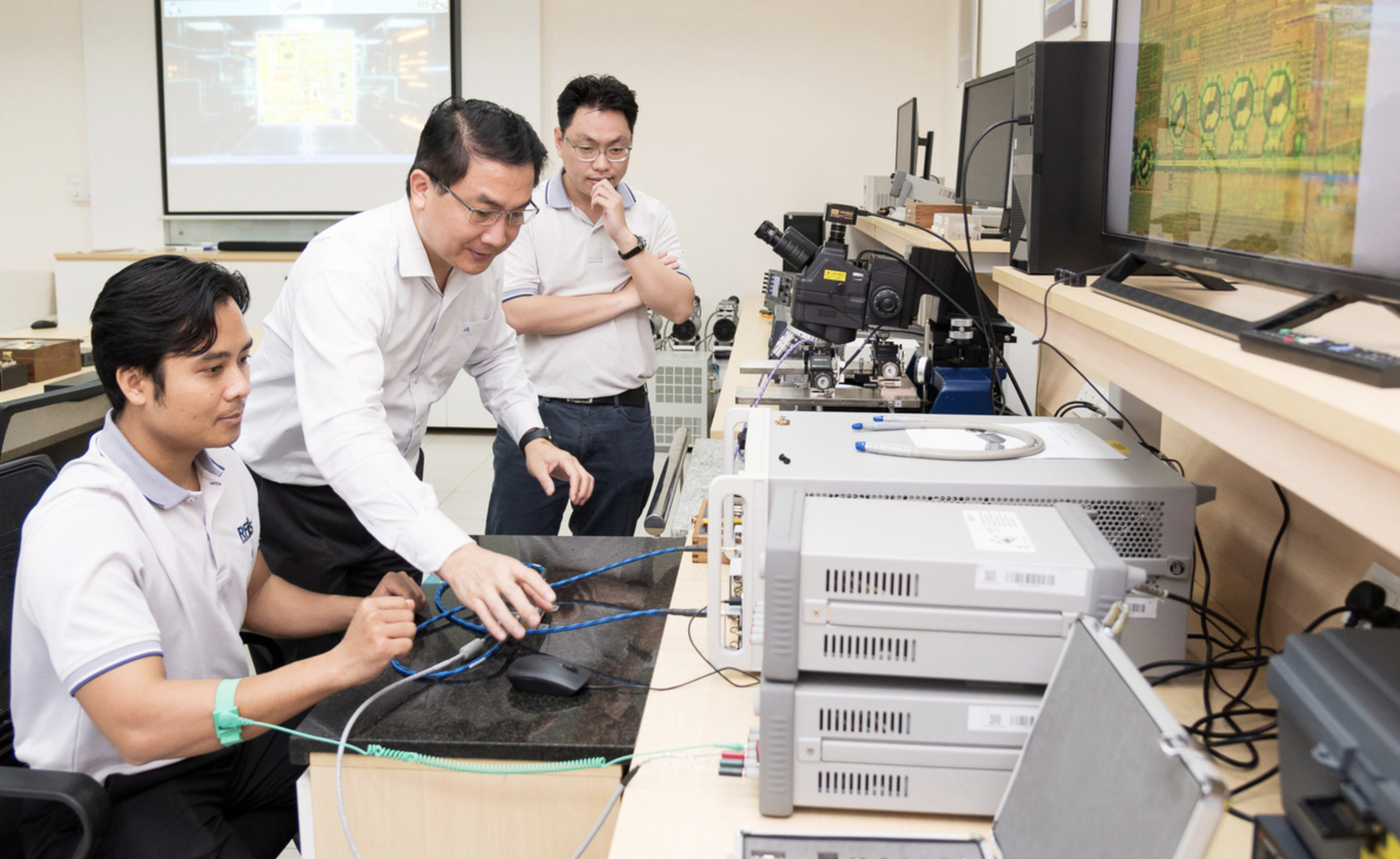The national government has set a target of developing Vietnam into a global electronics and semiconductor hub as the industry is seen as a key to the success of other sectors.
The prime minister has approved a semiconductor development strategy until 2030 with a vision toward 2050, along with a detailed road map for the challenging ambition.
The country will implement the strategy in three phases, with the first from 2024 to 2030 focusing on attracting foreign investments selectively and forming a network of at least 100 chip design firms, one semiconductor manufacturing factory, and 10 chip packaging and testing facilities.
During the first phase, the country will train 50,000 engineers.
In the next phase, Vietnam will boost the growth of the semiconductor industry by combining self-reliance and foreign investment attraction from 2030 to 2040.
The country will form a network of at least 200 chip design firms, two semiconductor production factories, and 15 chip packaging and testing plants, with a workforce of 100,000 engineers.
During the last phase of the strategy, Vietnam aims to master semiconductor research and development, complete an autonomous Vietnamese semiconductor ecosystem, and become a leader in some stages and segments of the global chip manufacturing chain.
These goals reflect Vietnam’s big ambitions to transform itself from a nation lagging in high technology into a global semiconductor hub.
To fulfill such ambitious goals, Vietnam will face several challenges, especially workforce expansion and investment attraction in infrastructure.
Human resources: A passport to success
Realizing that one of the most important factors behind semiconductor growth is the workforce, the government has mapped out a detailed plan to train up to 100,000 engineers to serve the semiconductor industry by 2050.
Vo Xuan Hoai, deputy director of the Vietnam National Innovation Center, stressed that “human resources will make breakthroughs in the future semiconductor industry.”
Vietnam’s higher education system has been transforming significantly to suit the demands of the fourth industrial revolution. In 2024, approximately 20 universities started to launch the chip design major.
“All we have are human resources which are Vietnam’s biggest advantage over other nations in the region,” stated Assoc. Prof. Dr. Mai Anh Tuan, senior lecturer at the University of Engineering and Technology under the Vietnam National University-Hanoi.
When Vietnam possesses a highly trained and educated semiconductor workforce, other sectors will thrive as a domino effect, according to Tuan.
Yet it is challenging to train this number of potential semiconductor engineers in a short time. Therefore, cooperation between universities and firms is critical to training quality.
|
|
| Students attend an IC course at the Vietnam National University-Ho Chi Minh City. Photo: Thien Thong / Tuoi Tre |
Utilizing ‘China Plus One’ strategy
Amid the U.S.-China trade dispute, Vietnam has a silver lining as many investors active in the support industry are shifting their business to Southeast Asia.
The ‘China Plus One’ strategy is smoothing the path for Vietnam to attract investments in the semiconductor industry, and a close relationship with China and the U.S. also drives up Vietnam’s semiconductor growth as the two nations aim to tap the chip field in the Southeast Asian country.
“The strategy is bringing multiple opportunities to Vietnam to foster semiconductor and electronics industries,” said Assoc. Prof. Dr Tuan.
Nguyen Van Toan, vice-president of Vietnam's Association of Foreign Invested Enterprises, underlined that “to achieve semiconductor growth goals, we must concentrate on two factors at the same time, including enhancing foreign investment attraction in semiconductors and electronics toward technology transfer, and promoting domestic strengths by investing in a chip production plant.”
To make these opportunities practical, Vietnam should quickly build a comprehensive semiconductor ecosystem featuring chip research, design, packaging, and testing processes to turn the country into a global semiconductor hub.
China Plus One is a business strategy to avoid investing only in China and diversify business into other countries, or to channel investments into manufacturing in other promising economies such as Vietnam and India.
Universities rush to launch integrated circuit major
Assoc. Prof. Dr. Nguyen Thu Thuy, head of the Higher Education Department at the Ministry of Education and Training, stated that there are approximately 5,000 integrated circuit (IC) engineers, and that the number increases 10-15 percent each year.
It is expected to continue soaring in the coming time, Thuy affirmed.
Each year the Vietnam National University-Ho Chi Minh City trains 6,000 engineers for the semiconductor field, while the Ho Chi Minh City University of Technology trains 3,850 semiconductor engineers.
Meanwhile, nearly 3,000 engineers are trained at the Vietnam National University-Hanoi each year.
In addition, as many as 18 other universities will jump on the semiconductor training bandwagon to enrich the country’s chip workforce.
This eagerness to ramp up IC training is believed to turn the nation’s goal of churning out 50,000 chip engineers from now until 2030 into a reality.
Like us on Facebook or follow us on Twitter to get the latest news about Vietnam!


















































